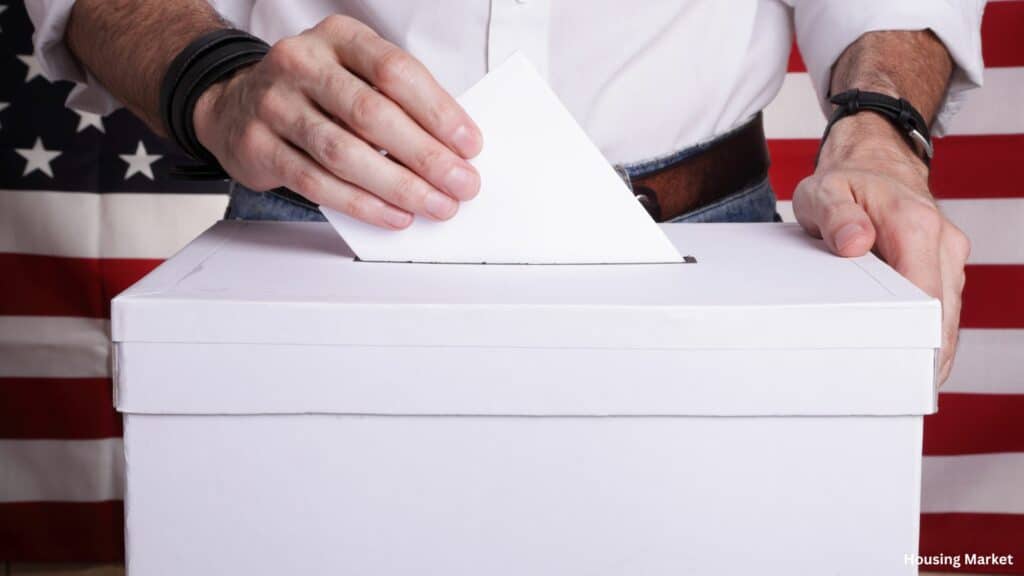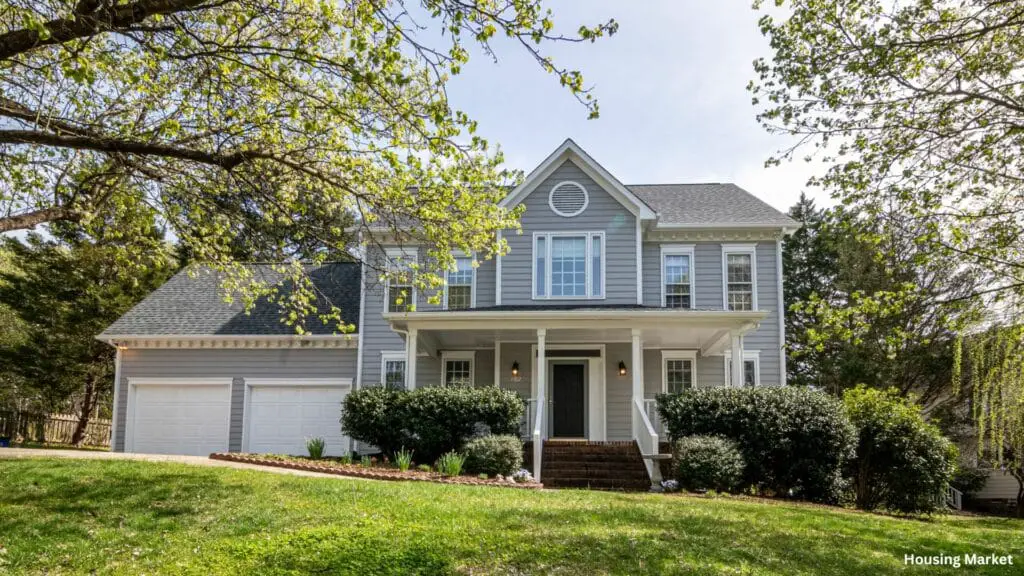Presidential politics affecting home prices is a reality that impacts millions of homeowners and buyers across the United States. As we approach the election, understanding the potential swings in market prices can be crucial for making informed real estate decisions.

Housing affordability has become a prominent issue, significantly more so than in past presidential races. President Joe Biden and Donald Trump have taken contrasting stances, reflecting their policies’ potential impacts on the housing market. Biden has proposed a $10,000 tax credit for first-time homebuyers, highlighting his approach during a speech in Nevada. Trump, conversely, has criticized Biden’s policies as harmful to suburban home values, particularly through his stance on expanding affordable housing options.
Rising Home Prices and Mortgage Rates Put American Dream at Risk in Key Swing States
This shift in focus to housing issues is intensified by stark affordability challenges, with home prices and mortgage rates rising, making homeownership less accessible, especially for first-time buyers. This debate is crucial as it unfolds in key swing states, with both candidates needing victories in these areas to secure the election. The situation is underlined by worsening affordability metrics, like the home price-to-income ratio reaching record highs and substantial burdens on renters, complicating their ability to save for a down payment.

Analyzing Biden’s Housing Affordability Proposals: Potential Impacts and Challenges
In his State of the Union address, President Biden unveiled proposals to enhance housing affordability, including significant tax credits aimed at first-time and upgrading homebuyers. While these measures are designed to reduce housing costs, they face the challenge of needing congressional approval during an election year. Critics argue that increasing demand through such tax credits without boosting housing supply may inadvertently raise home prices, although proponents believe they could help alleviate market logjams by encouraging current homeowners to sell and upgrade.
Trump’s Response: Alleging a ‘War on the Suburbs’ in Housing Policy Debate
In a recent campaign video, former President Donald Trump criticized Democratic efforts to increase housing affordability, framing them as an attack on suburban areas. He claimed that these policies would lead to the destruction of single-family home zoning and a decrease in property values due to the construction of large multifamily units. This rhetoric builds on his previous presidency’s stance against extensive suburban development, despite a significant housing shortage noted during his term. Trump’s comments are part of a broader appeal to suburban homeowners, leveraging fears of decreased home equity and community changes.
Presidential Politics and Home Prices: Key Issues for Voters in 2024 Election
As the 2024 presidential election approaches, housing affordability emerges as a pivotal issue likely to influence voter decisions across the political spectrum. Polling indicates that housing concerns are significant for Democrats, Republicans, and independents alike, with no clear partisan advantage. This uniform concern presents a unique opportunity for presidential candidates to appeal to a broad voter base, including independent voters who might swing the election.
Both candidates have distinct approaches: Biden focuses on increasing affordability to appeal to renters and first-time buyers, while Trump targets homeowners concerned with preserving property values. This dual strategy underscores the critical role housing policies may play in shaping electoral outcomes, particularly among demographics with varying levels of political engagement, like homeowners and renters.

The Impact of Election Cycles
Election years bring a lot of uncertainty, which can make investors and homebuyers hesitant. Historically, the real estate market experiences a slowdown during these periods as people wait to see the outcome and potential policy changes that could affect the economy and interest rates. For instance, during presidential campaigns, candidates often discuss policies that could directly impact sectors like housing, such as tax reforms or changes in government housing programs.
Examples from Past Elections
Looking back at previous elections can provide insights into how presidential politics influence home prices. During the 2016 election, for example, some regions saw market stagnation, which analysts connected to the uncertainty about policy directions. Conversely, post-election periods can either stabilize the market or lead to increased volatility, depending on the perceived economic policies of the elected president.

Presidential politics undoubtedly play a significant role in shaping home prices. As voters and potential homebuyers, staying informed about the implications of elections on the housing market is essential. By understanding these trends, you can better time your buying or selling decisions to optimize your investment.
Related posts:
 Affordable Rental Provider Repays $710K to Arlington County
Affordable Rental Provider Repays $710K to Arlington County
 Decline in Home Prices: Anticipating a Shift in 2024
Decline in Home Prices: Anticipating a Shift in 2024
 Maryland Governor Legislative Agenda: Military Families, Housing, and Public Safety in 2024
Maryland Governor Legislative Agenda: Military Families, Housing, and Public Safety in 2024
 Nashville’s Zoning Bills for Middle-Income Housing Spark Contentious Debate
Nashville’s Zoning Bills for Middle-Income Housing Spark Contentious Debate
 Tampa Affordable Housing Initiative Breaks Ground on New 188-Unit Building
Tampa Affordable Housing Initiative Breaks Ground on New 188-Unit Building



